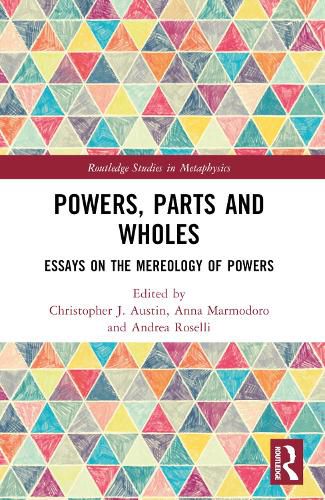Readings Newsletter
Become a Readings Member to make your shopping experience even easier.
Sign in or sign up for free!
You’re not far away from qualifying for FREE standard shipping within Australia
You’ve qualified for FREE standard shipping within Australia
The cart is loading…






This volume offers a fresh exploration of the parts-whole relations within a power and among powers. While the metaphysics of powers has been extensively examined in the literature, powers have yet to be studied from the perspective of their mereology.
Powers are often assumed to be atomic, and yet what they can do-and what can happen to them-is complex. But if powers are simple, how can they have complex manifestations? Can powers have parts? According to which rules of composition do powers compose into powers? Given the centrality of powers in current scientific as well as philosophical thought, recognizing and understanding the ontological differences between atomic and mereologically complex powers is important, for both philosophy and science. The first part of this book explores how powers divide; the second part, how powers compose. The final part showcases some specific study cases in the domains of quantum mechanics and psychology.
Powers, Parts and Wholes will be of interest to professional philosophers and graduate students working in metaphysics, philosophy of science and logic.
$9.00 standard shipping within Australia
FREE standard shipping within Australia for orders over $100.00
Express & International shipping calculated at checkout
This volume offers a fresh exploration of the parts-whole relations within a power and among powers. While the metaphysics of powers has been extensively examined in the literature, powers have yet to be studied from the perspective of their mereology.
Powers are often assumed to be atomic, and yet what they can do-and what can happen to them-is complex. But if powers are simple, how can they have complex manifestations? Can powers have parts? According to which rules of composition do powers compose into powers? Given the centrality of powers in current scientific as well as philosophical thought, recognizing and understanding the ontological differences between atomic and mereologically complex powers is important, for both philosophy and science. The first part of this book explores how powers divide; the second part, how powers compose. The final part showcases some specific study cases in the domains of quantum mechanics and psychology.
Powers, Parts and Wholes will be of interest to professional philosophers and graduate students working in metaphysics, philosophy of science and logic.